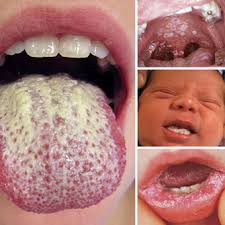
中文词源
thrush 鸫,歌手
一种鸣禽或鸣鸟,来自中英语 thraesce,来自 Proto-Germanic*thruskjon,来自 PIE*trozdo,鸫,鸣 禽,词源同拉丁语 turdus,鸫。引申词义歌手。
英语词源
- thrush
-
thrush: Thrush the bird [OE] and thrush the disease [17] are presumably different words, although the origins of the latter are obscure. The bird-name goes back to a prehistoric Germanic *thruskjōn, and has relatives in Latin turdus ‘thrush’ (source of English sturdy), German drossel ‘thrush’, and the now archaic English throstle ‘thrush’. The first record we have of thrush the disease is in Samuel Pepys’s diary, for 17 June 1665: ‘He hath a fever, a thrush, and a hickup’. It may have been of Scandinavian origin (Danish has troske for a similar disease).
- thrush (n.1)
- type of songbird, Old English þræsce, variant of þrysce, from Proto-Germanic *thruskjon (cognates: Old Norse þröstr, Norwegian trost, Old High German drosca), from PIE *trozdo- (cognates: Latin turdus, Lithuainian strazdas "thrush," Middle Irish truid, Welsh drudwy "starling," Old Church Slavonic drozgu, Russian drozdu).
- thrush (n.2)
- throat disease, 1660s, probably from a Scandinavian source (such as Norwegian, Danish trøske, Swedish torsk), but its roots and original meaning are unclear.
权威例句
- 1. A thrush alighted on a branch of the pine tree.
- 一只鸫落在松树的树枝上。
- 2. That's the wise thrush ; he sings each song twice over.
- 聪明的 鸫鸟 在那儿唱,把每只歌都唱两遍.
- 3. Using a spacer will also help reduce the possibility of thrush.
- 利用储药罐也会减少发生鹅口疮的可能.
- 4. A condition in horses similar to but more advanced than thrush.
- 马的疽疡''.'症'. ''马的类似于蹄间腐烂但较之更为严重的一种病况.
- 5. The singing voice of Japanese Thrush was heard in the forest.
- 我听在森林里听到乌灰鸫的鸣叫了.